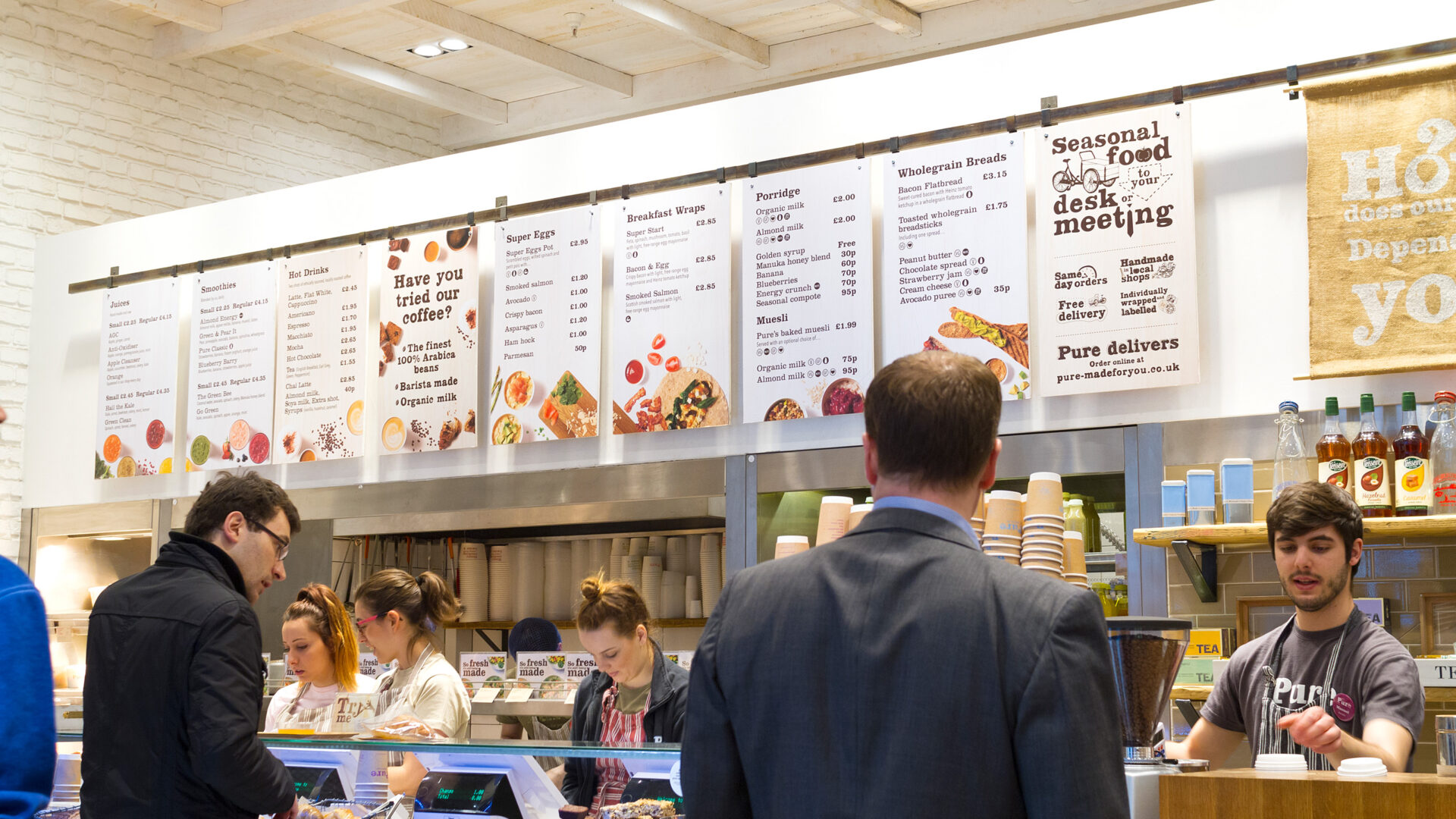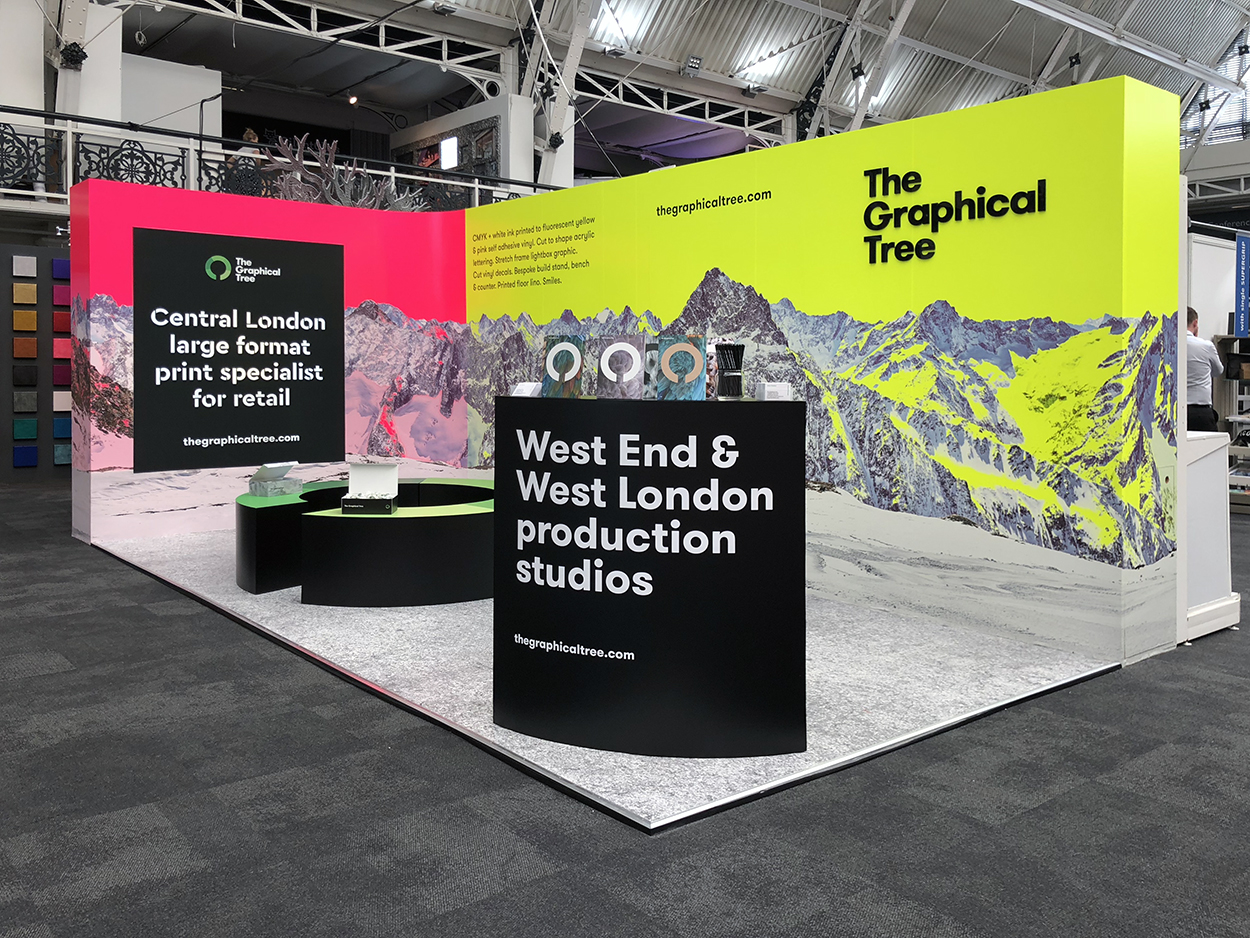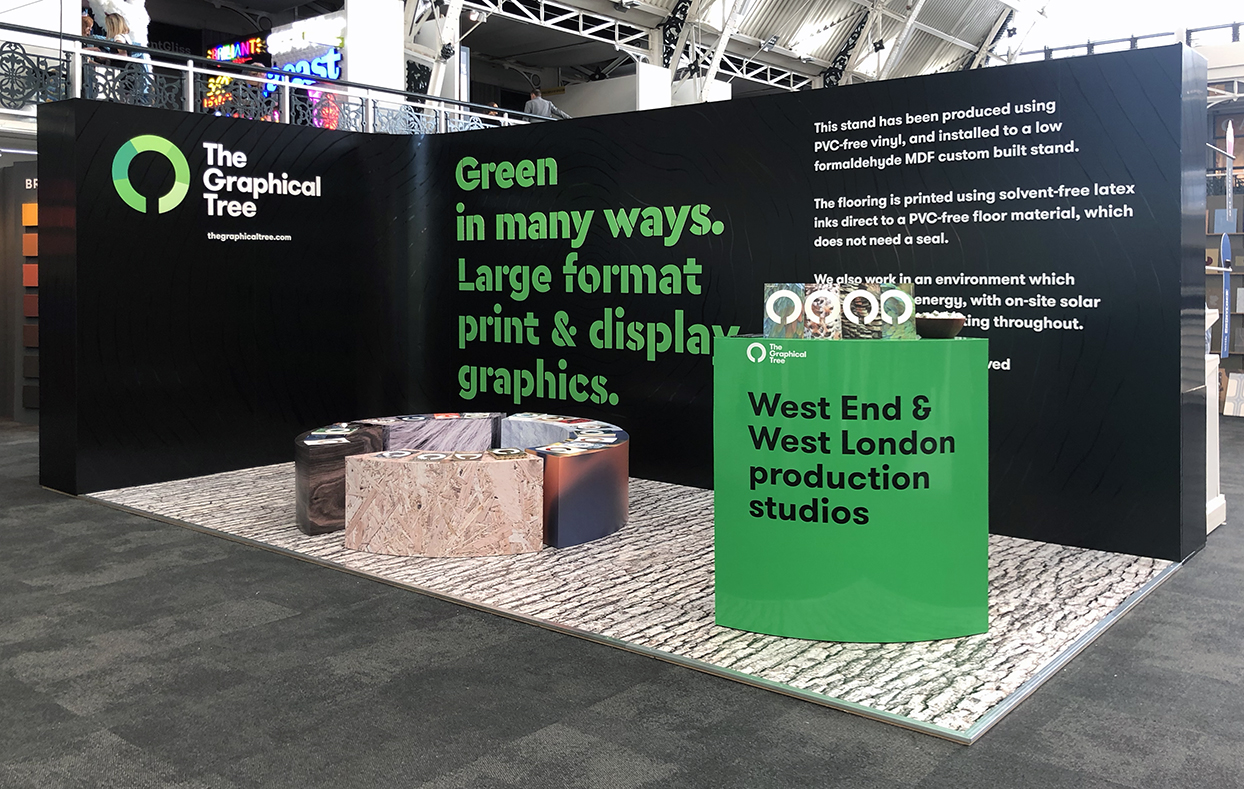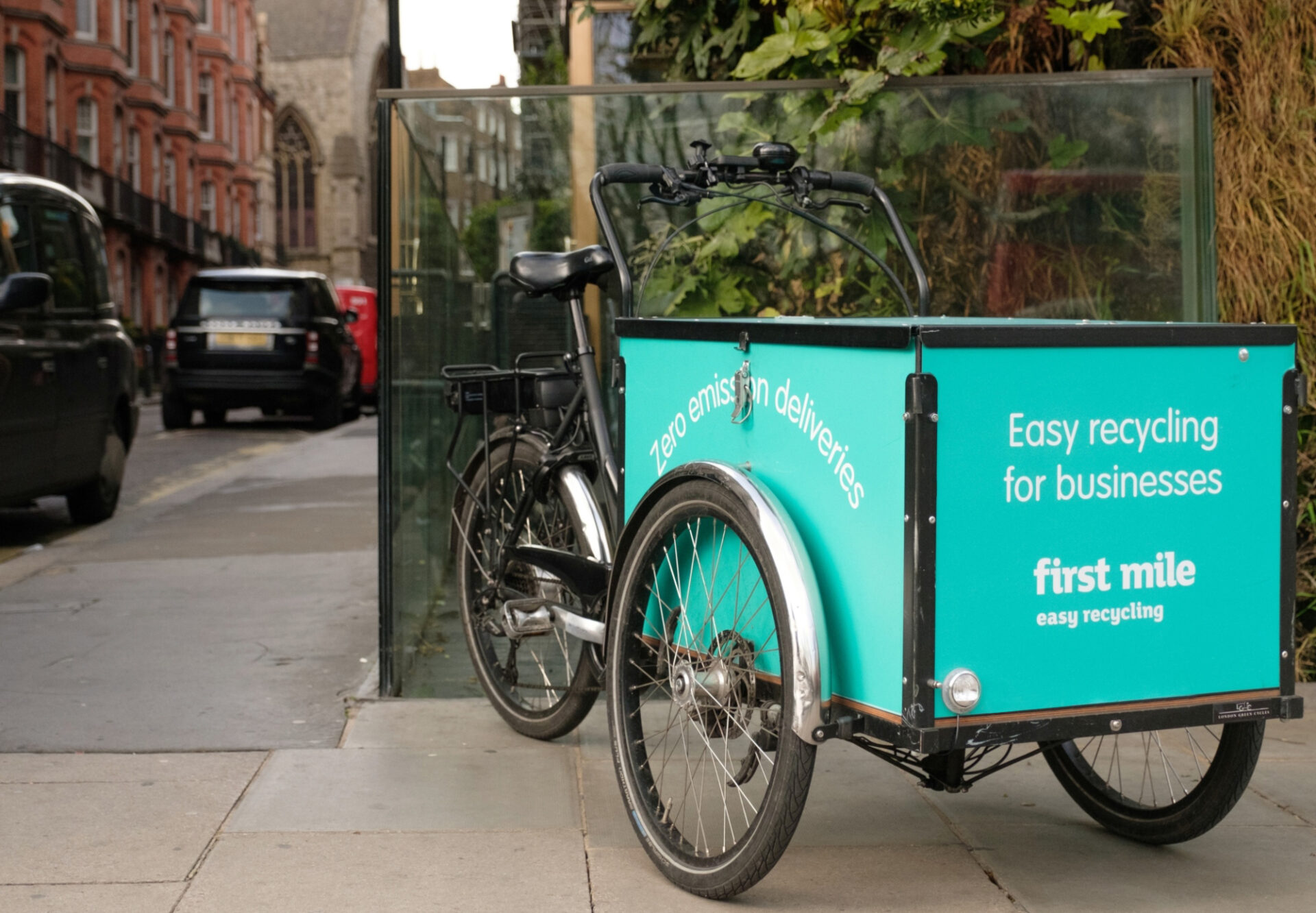Graphics can be a lot like single-use plastic, i.e. used once and then very often discarded. This is universal across retail, and events for sure, and certainly affects the trade show exhibition and arts industries too. But there are ways to think about graphics that could help make things a little more sustainable. With this in mind, we have put together a few tips which you could think about when planning and ordering your large format print.
As we said, a graphic you use once is a bit like single-use plastic, instead, it's a single-use graphic. So instead of throwing away or even recycling a graphic at the end of its initial use, plan for it to be used again in the future. Perhaps you attach a board to a wall, or hang one in a window rather than use a self-adhesive vinyl single-use graphic. With many boards we can either print to the surface again, to create a full coverage graphic, or if your design team are really clever, we could change elements of the board each time. Or perhaps you could make the graphic reversible and switch sides for the next display. This is especially important when using boards such as Foamex. Foamex, though not generally recyclable is highly re-usable due to its hard-wearing material make-up.
The events and tradeshow industries could definitely think ahead for the future and design stands that can be re-purposed in the future. You could use the same graphics multiple times across events, or have you thought of re-skinning (recovering) an existing framework again in the future? This is particularly easy when it comes to modular stands, but it's also possible with bespoke builds too. Not only does this save you money, but you also don't need to produce as much for your next event. We've more on this a little lower down.

How about using a paper-based board such as Falconboard / Dufaylite or DISPA Board which are excellent “green†alternatives to PVC boards? Or even Smart-X or DiBond which are great for outdoor displays. All these boards are recyclable with Smart X and DiBond being easily reusable too.
Another way to approach your graphics, much like re-use, is by producing something to stay in place long term. If you're a retailer you could set up in-store areas which would remain focused on one particular style of clothing or product throughout the year – ever-green items such as denim, or fleeces (who doesn't need a fleece throughout the year in the UK?) This gives you the license to produce a visual display that stays in place or at least changes infrequently throughout the year. If you do want change, perhaps the display could be designed so only certain elements need an update.
Now, back to the events and tradeshow industries and how to plan ahead for the future. Task your design team to think long-term and design stands that can be re-purposed. If you decide to re-skin your stand it's one thing, but if you can reuse the actual set and framework then all the better. Often the plastics used in stands isn't recyclable or sets are built with traditional MDF. While this wood-based product is made from sawdust and, if it is certified, uses sustainably grown wood, it uses glue to bond its composite pieces. Regardless of re-use, ask your set builder about an MDF product called Medite Ecologique with a zero formaldehyde glue called MDI. You need much less MDI glue need to bond a board together, 3-5% as opposed to 10-15% for formaldehyde-based glue boards. Secondly, MDI is also inert, meaning it does not let off gas and VOC's. Our friends over at Isla have developed a very useful framework tool for the events and tradeshow industries that can help you consider your eco-footprint when planning ahead – proseed.events



A vital print tip is to make sure your large format print supplier is using eco-friendly inks such as HP Latex. These water-based inks are the mainstay of our own production and ECOLOGO and GREENGUARD Children & Schools Certified, as well as being odourless, non-flammable and non-combustible. It means if you do, and can, recycle the boards or materials you use, you're not putting solvent-based ink into the ground or burning it at the disposal stage.
It's taken a while but it's possible to use materials now which are PVC-free. These include self-adhesives, floor graphics and the popular cling materials used by visual merchandisers up and down the country in retail stores. Ask your supplier for the most suitable eco-print material available depending on the graphic to produce, where it's being used and how long its life span will be.
Another big thing to consider is delivery. How far is your supplier from the delivery address? Can you despatch in a way that doesn't eat up countless courier miles? Could you arrange a pushbike rather than a motorbike or van, could you even pick up the graphics yourself on foot or bicycle? We find this happens a lot to us thankfully at our central London HQ with customers regularly dropping by to pick something up, or if we're really local, it's not unheard that we'll swing past you to drop something off ourselves – current workload permitted of course – we don't want to miss any deadlines after all. But seriously, it is one of the reasons why we're based in Central London, for the convenience of easier deliveries.

Who looks after your waste? In Central London, we use a waste collection supplier called First Mile, which separates and dispose of all waste in the most eco-friendly way available. This includes burning non-recyclable waste to generate clean energy and collecting food waste for composting, all instead of landfilling. Our West London site's waste is collected by Hillingdon Council, one of just 74 out of 345 local authorities in England who collect collects dry recyclables. You can request information from your local authority about what they collect regards recycling, be warned, not all are as comprehensive as our own, unfortunately.
If you have any more sustainable ideas please share them. Knowledge is so important and it's not just ourselves we're thinking of here, it's the planet and future generations too.